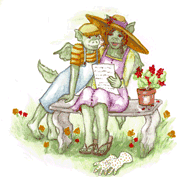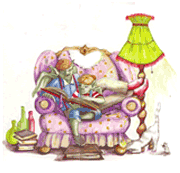– A tutor worked with a 49 year old totally illiterate man for eleven months, and though guided by his literacy council, his student’s progress was negligible. However, the first time The Vowel First Method was presented, the student read his first words ever. Six months later this student was the recipient of the prestigious Peter Gzowski Learner Achievement Award. For more information, please refer to the Note from a Tutor in the Letters of Acknowledgement section.
– In the summer of 2014, I saw a 9 year old dyslexic child from California. Her reading level was assessed to be at the end of grade 1 while the majority of her peers were reading at the grade three and four levels. This limited progress occurred even though she had been exposed to a popular remedial reading program and was seen for three 2 hour session per week for the better part of the previous school year.
The limited progress did not surprise me for intensity, whether it be in reference to the quantity of work and/or its frequency of sessions, tends to overwhelm students with persistent learning difficulties. Once overwhelmed, these students find themselves in a situation which is not conducive to learning.
I had the opportunity to see the child for 2 one hour sessions and during this time her reading skills advanced from the end of grade one to the beginning of grade three. Incidentally, it was the child’s tutor in California who assessed her reading levels – not me.
The child’s father, a University of Southern California (Davis) psychology professor, sent me a letter of appreciation and here is an extract from it.
“I have watched my daughter go through various reading programs and never have a great deal of success. However, in the two brief sessions Zoe had with Ms. Trower, I saw remarkable progress in her reading abilities – our daughter could read a passage that until then had been indecipherable to her.”
– After introducing my work to a McGill University Faculty of Education professor, I received an invitation to present at their 2015 Distinguished Educator Seminar Series. Unfortunately, things didn’t work out for due to financial cut-backs, 11 out of the 19 seminars were cancelled and this included mine. I’ve decided to mention this for being chosen to participate in such a prestigious event is an accomplishment in itself – one which I believe demonstrates the confidence my colleagues have in my work.
– The School Board psychologist is excited about the Program for she is finding it is reaching students who have been resistant to the various programs and approaches they had previously been exposed to. As a result, she is enthusiastically recommending it to teachers and parents.
– When I first met a severely dyslexic 12 year old, she could not read words such as log, hut and top. However, within 15 minutes of her first session she was applying the Program’s unique decoding techniques and independently reading words of this nature. Her resource teacher had sat in on the session and was so impressed with the Program that she bought it then and there. She was using it within a couple of days and continued to do so until she retired. She later mentioned that within the two years she had used the Program she didn’t encounter a single child who didn’t benefit from it.
– A tutor reported that her ten year old student “was amazed to learn that there are rules he could use”. She continued by thanking me “for making a program that anyone could apply.” Lynn, Ontario.
In reference to the Program’s rules and the many exceptions in the English language: The Program’s specifically designed workbook exercises and reading materials avoid most exceptions (aka sight words) during the early stages of remediation. This keeps things simple and thus allows the students to acquire their foundational skills with relative ease. Furthermore, the confidence the progress fosters, encourages further growth.
– When a new acquaintance discovered that I was involved in literacy as she was, she eagerly informed me of a valuable teaching aid she had come across. The woman was taken aback when she realized she was talking to the aid’s designer.
– CBC radio and the National Library of Canada have both shown an interest in my work. I was interviewed three times by the CBC and the National Library chose the Darwin Program for inclusion in a display that promoted literacy.


